Google won't read Gmail emails anymore for advertisement
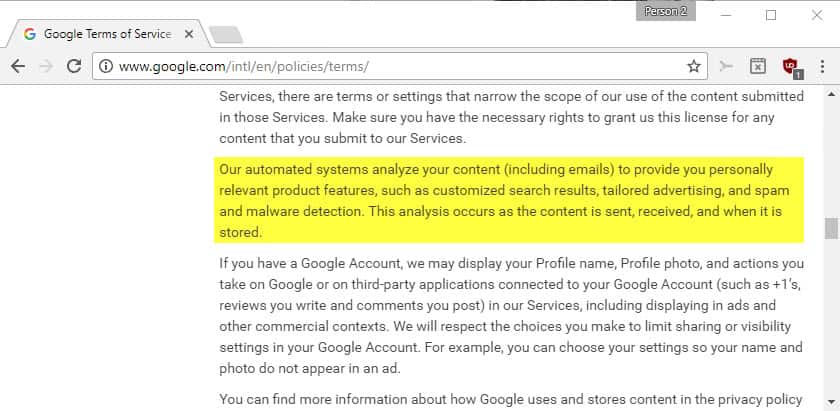
According to a new blog post on Google's blog, Google will soon stop scanning emails on its Gmail email service for advertisement purposes.
Gmail scans user emails on Gmail for a variety of purposes. These include to make sure that they don't contain spam or malware, but also to use the information for advertising purposes.
Privacy advocates have criticized Google for the practice, and Microsoft never failed to mention the fact and even used it in the company's infamous Scroogled advertisement campaign.
Google uses the information that it gains from the scans, and information that it has about the user from other sources, to display targeted advertisement to the user.

Google states that in Gmail's Terms of Service:
Our automated systems analyze your content (including emails) to provide you personally relevant product features, such as customized search results, tailored advertising, and spam and malware detection. This analysis occurs as the content is sent, received, and when it is stored.
Google's Diane Greene, SVP Google Cloud, announced the change in a new blog post on the official Google blog on June 23, 2017.
G Suite’s Gmail is already not used as input for ads personalization, and Google has decided to follow suit later this year in our free consumer Gmail service. Consumer Gmail content will not be used or scanned for any ads personalization after this change. This decision brings Gmail ads in line with how we personalize ads for other Google products
The decision was not made by Google's ad division, but by the company's Cloud division. The rationale behind the decision is that Google's Cloud division believes that organizations may not use Google's services because of the privacy implications that go along with scanning emails for advertisement purposes.
Google's G Suite never displayed email scanning advertisement to users of the service, but Google believes that company decision makers may still have been confused by it.
The outcome is positive for users of the free Gmail service: Google plans to stop scanning Gmail emails for advertisement purposes.
This does not mean that the free Gmail won't show advertisement. The ad selection process however will use other available sources of information to display ads to users on Gmail, for instance from searches or from YouTube activity.
Google is playing catch-up to Amazon and Microsoft when it comes to Enterprise cloud services. Revenue of the company's cloud division is on the rise; G Suite has more than 3 million users as of June 2017, and usage has doubled in the past year among large business customers according to the announcement.
Now You: What's your take on the announcement?



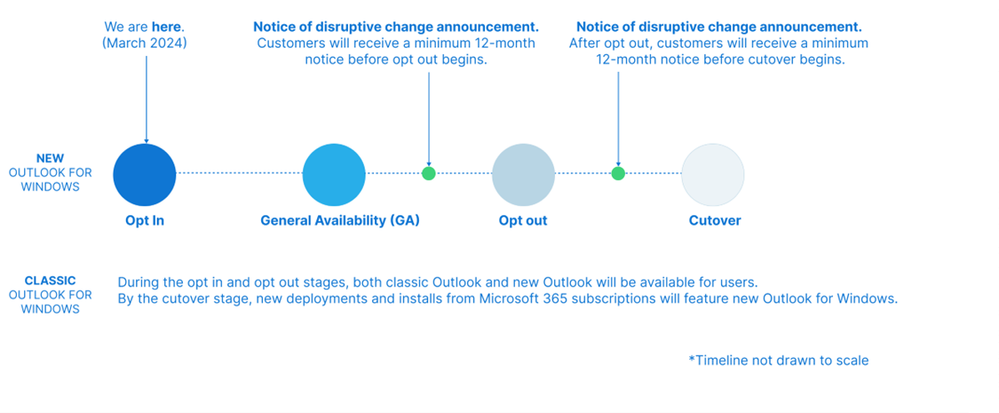



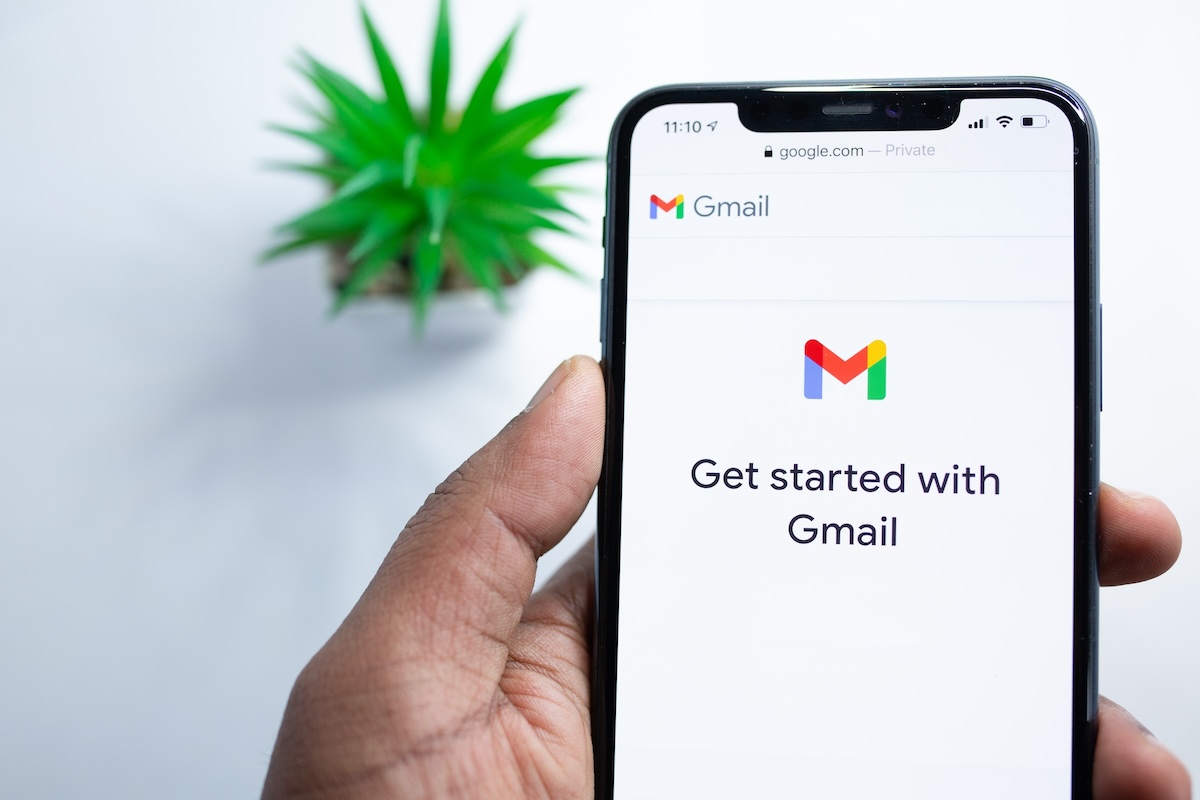
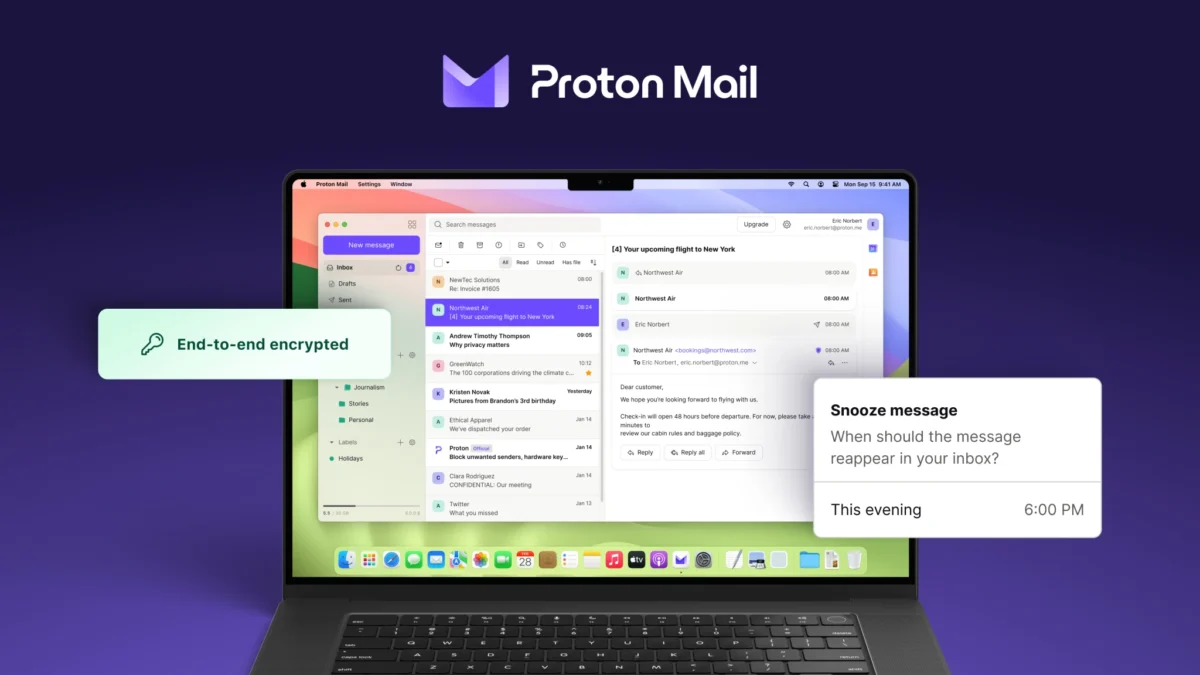
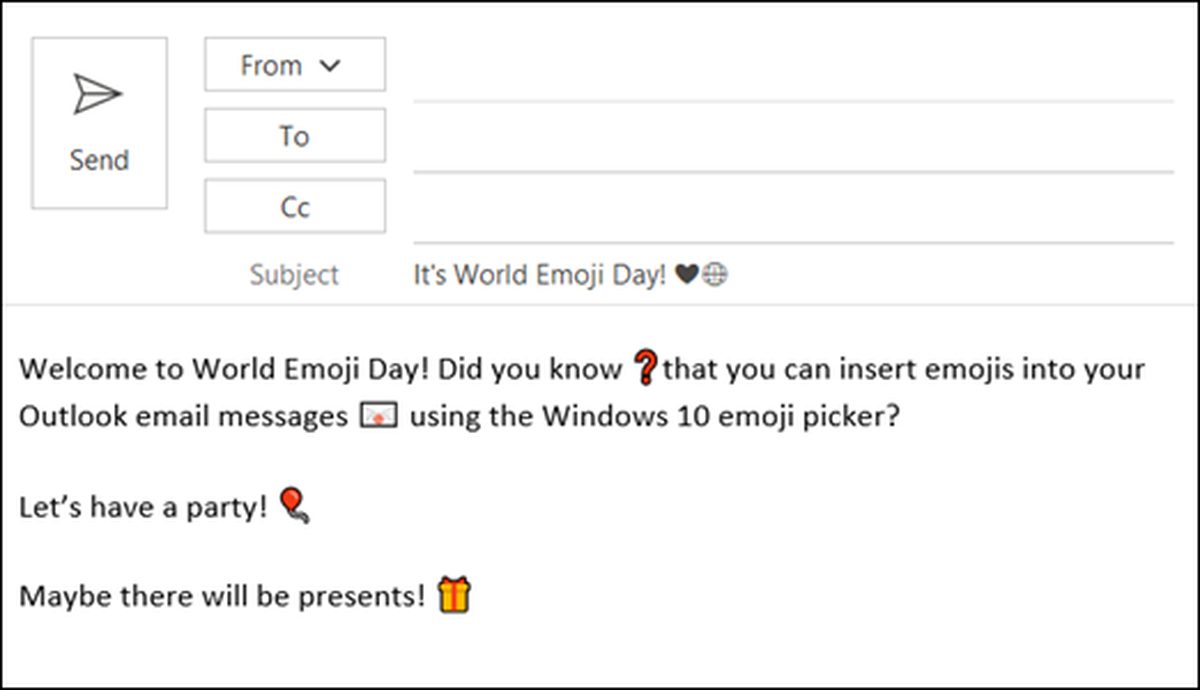
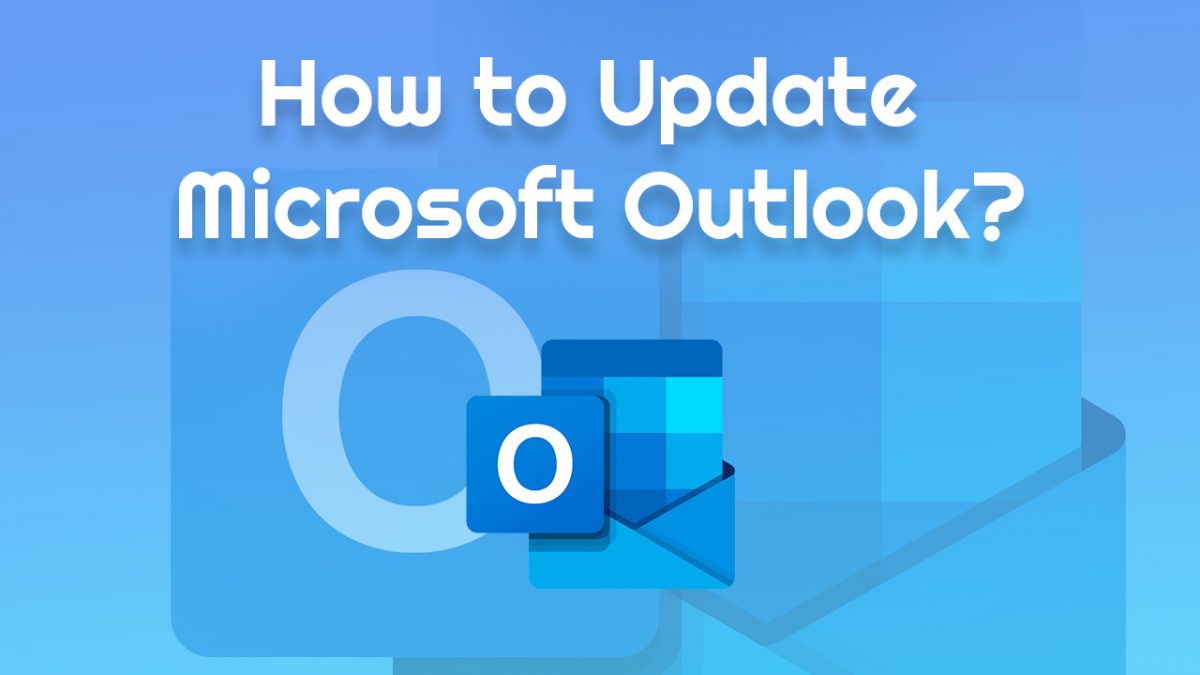

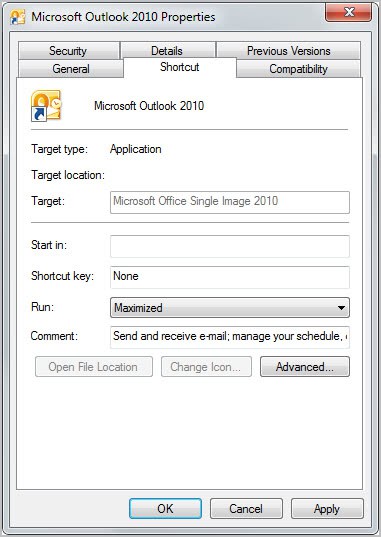










This seems like more of a PR stunt than anything. Average users won’t be able to understand “google use (super?) ‘cookies’ to track you all over the web so they don’t need to scan you email for personalization anymore”. They will understand “Google had a crisis of conscience and decided, after over a decade mind you, that scanning your email for ad personalization was ‘doing evil'”.
Either way, it’s bullshit.
Plus, they still DO scan your emails. It’s just that they don’t shove behavioural ads down your throat, they do other things with the data instead. So this move has nothing privacy related to it.
Google won’t read Gmail emails anymore for advertisement
this is the title of your news
this is a lie
in fact nothing new because you can already set gmail not to personnalize ads
they will always scan your email for ads, there will be no filter for ads accuracy from their own
but this is the job of ads spin doctors offices
And they will keep scanning emails for everything else.
Such declarations are always bogus, they are not technically lies, but if there is the slightest way that they can be interpreted in a subtle, different way that breaks all the statement, then this way is the correct one. I’ve seen that so many times, it’s actually funny.
ProtonMail FTW.
That’s only as ‘private’ as the person you send it to.
@Dud
You’ll get SOME privacy outgoing, so I guess that’s better than nothing. Until the other guy quotes and responds back to you. Then you’ll have your whole conversation on record with google.
@Joey
That’s a big if
@www.com
Also you get vastly increased privacy from not having to deal first hand with Google, even if you do send mails to people using Gmail.
Trying to get above the clouds in order to widen the perspective, I get to wonder where privacy remains nowadays. Maybe processing all we know about our Web privacy is still far from obfuscating all we’d wish or hope to keep private. No idea. What is sure is that if there’s anything that triggers curiosity among those who scan the Web then anyone way be spotted, tracked, followed. So, as my old man use to say, given “heavens are filled with heroes” I’ll take the precaution of staying in the lines, which doesn’t mean to not exercise critics but to avoid what we’d call then, subversion. That’s for the big eyes and ears; remains to know the differential between what those can perceive and what commercial cyber-investigation (yeah, spot ‘n’ track) can come up to.
Gosh. On a flight you’ll avoid describing to your friend your latest conquest in terms such as “She’s a bomb!”, and on the Web you’ll avoid mentioning a private relationship with the daughter of a Saudi prince, among many more better-to-keep-for-yourself highly sensible keywords :)
Not that much of a problem if the recipient company doesn’t auto-read mails any more.
Remains metadata and security.
For my personal e-mail, I value security more than privacy, and Gmail is very secure.
Good news nonetheless.
You don’t have security without privacy.
I don’t care at all. I’ve been using Gmail since it became available. I’ll continue using it–scanning or no scanning.
Me too, it has never worried me either, its not like someone you know is reading your private emails its just a bot scanning for keywords, and the GMail service is fantastic IMO especially considering its a free service and provides features I use that others don’t.
@Earl: The thing is a right to privacy is part of the Universal Declaration of Human Rights and it says No one shall be subjected to arbitrary interference with his privacy, family, home or correspondence, nor to attacks upon his honor and reputation. Everyone has the right to the protection of the law against such interference or attacks.
As you can see that right to privacy doesn’t come with caveats or exclusions, like as you’re suggesting that you automatically forgo your rights when in a public space, the right to privacy is not something that people should be comfortable with having taken from them, often without their knowledge.
@Corky: That there’s an element of society with the attitude that they have the right to expect privacy when they’re in a public environment is something I find troubling. I just don’t worry about trying to keep my emails private from my email provider. That’s just silly. I’ll worry about keeping private that which is and should be private but not things that are clearly not private.
@Earl: WC = Water closet, toilet, outhouse, place you go to take a dump, etc, etc.
You’re spot on with what you say about emails being sent in plain text and how they’re closer to a postcard than a letter in an envelope, however i never said they were secure or private, to paraphrase i said some peoples attitude to privacy is rather disturbing.
That there’s an element of society who thinks it’s OK for someone or something to read or scan their supposed private emails (jupe’s words not mine) just goes to show how blasé the Internets become about privacy, be that real privacy or implied privacy.
@Corky: I don’t know what you mean by “WC” (maybe it’ll come to me later). But,
email is sent in cleartext all over the Internet. It’s not private to begin with. Why in the world would I concern myself with how my own provider of the service uses it internally, if at all? Private? …email? only if you encrypt it yourself.
Email is just like postcards–anyone can read your messages if they bother to look.
@Jorah, I totally agree with what you write, I’m only wondering if you are right to believe that people concerned by their privacy are the trend or if the trend is not the other way around : “as long as the service is worth it, what the heck my privacy?”
Like in the movie ‘Indecent Proposal” where a billionaire (played by Robert Redford) offers $1,000,000 to a young married couple for one night with the wife. What I mean is that if many of us do have principles, be it for their morality but also concerning their privacy, starting when do some of us start wondering if a service such as some found on the Web, so exciting, are worth or not the price of their privacy. And I’m afraid many, more and more, are inclined to accept the indecent proposal. I even happen to ask myself if they are not right, you see? Mainly because, philosophically, I’m cautious with certitudes.
@Tom
Privacy is a market nowadays. It is on the rise, after a decade of loss in that area people are finally starting to get the point. Snowden started it all IMO, and more events occurred since then.
Now it’s not just HTTPS and content blockers that are becoming widespread, it’s also starting to reach secure emails and apps, and end to end encryption. Also the second most used browser in the world is gaining a ton of Tor Browser grade anti-fingerprinting protections as we speak.
I see no reason that this market will suddenly stop growing as companies continue to provide more extremely invasive services.
Researchers are looking into ways to collect and use data that is “mathematically” safe with regards to privacy infringements.
Reading you guys, and knowing that many share that way of seeing things, more and more in fact, I get to wonder if privacy is not bound to disappear factually because already vanishing as a value. Is privacy a cultural matter or is it deep anchored in human genes? Maybe Is it only indeed cultural, maybe one day or another everyone will know everything about everyone. I try to imagine such a civilization, not easy. It’ll be without me… and a few others, should I be out/old-fashioned. Not to mention that if such a scenario in a world of love ‘n’ peace is one thing, in a world of power relationships between the people, the politics and the commercials is another where more is known of us more he who knows has influence on who he knows. Think about it. The power of information.
If someone placed cameras in your WC and told you not to worry as the images it recorded would only be scanned by a machine would you be as blasé about privacy?
Yes – definitely a positive step. I wonder does it apply also to google calendar/ drive ?
Big G probably has something better figured out. They won’t give up one cent, or one piece of personal data if they don’t have a better alternative. Or does anybody honestly believe they ran out of storage capacity or all of the sudden they became more ethical ?
The cynic in me says that with Google, there’s always another shoe to drop. I hope I’m wrong as on the face this announcement sounds positive.
>Consumer Gmail content will not be used or scanned for any ads personalization after this change.
Pay close attention to the language used. They will not scan it for ads personalization.
They did not say they will stop scanning.
The public does not know what they scan for.
Who believes that?
I can’t. Advertising is something like 90% of Google income and emails are valuables.
I believe it, even if the move is profit-oriented (especially if it is! — am I cynical?) rather than motivated by ethics.
I always thought that if honesty is not triggered by humanism (or spirituality) it happens sooner or later to be conducted by cold rationalism, it only takes longer to arise in the latter case. Google being all but stupid I’ll consider its decision as factual and, as Yuliya, take it as a step in the right direction.
I’ve been getting a lot less spam recently, maybe that’s one of the benefits with their policy changes.
But like you, I’m a bit skeptical.
ddk wrote: “I’ve been getting a lot less spam recently, maybe that’s one of the benefits with their policy changes.”
Nope. Read the article again. The policy change is supposed to go into effect later this year. Nothing has changed at Google so far.
A step into the right direction. There’s already kilometres done in the wrong way for this company, but hey, one step into the right direction is still one step into the right direction, which is one step more than some other companies mentioned in this article.
It would be good news IF it was true without caveat.
Like, do they still study metadata and relationships to build a profile on you and your contacts who do not necessarily use Gmail. Do they still group information together from all their services into one unified profile. Etc.
The only way I would trust Gmail with my emails is if they didn’t have any access to it due to end-to-end encryption and similar measures. i.e. ProtonMail.
Even then, considering the entire purpose and history of Google, I’m not sure it can ever become trustworthy. I would be happy if one day they somehow do, though, considering their almost-monopoly status on tons of things.
Well, Jigsaw, indeed. I’m disappointed.
As expected, there is a huge caveat that makes it all worthless from a privacy point of view.
Google continues to scan emails for everything else.
” Il est important de noter que la société ne fait marche arrière que sur le terrain publicitaire. Ses algorithmes informatiques continueront en effet à analyser les e-mails, notamment pour alimenter ses applications mobiles en informations personnalisées. Celles-ci peuvent alors indiquer lorqu’un vol est retardé ou rappeler une réservation au restaurant. En outre, Google a récemment lancé une option qui suggère automatiquement trois courtes réponses après avoir scanné un courrier reçu. ”
http://siliconvalley.blog.lemonde.fr/2017/06/24/google-ne-lira-plus-vos-e-mails-a-des-fins-publicitaires/
So Google will continue to scan mails and use the data to feed their apps that suggest things. Anything AI related will continue to feed on email content.
Is it worth updating your article with that information, Martin ?
Two steps [more] than some other companies .. it’s called “Opportunity Cost” – https://en.wikipedia.org/wiki/Opportunity_cost :) Just another 20,000 steps to go…